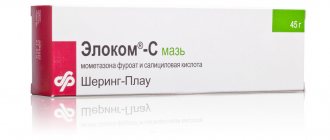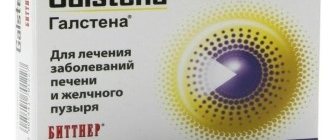The drug "Karsil" is an effective and inexpensive remedy for the treatment of chronic liver inflammation. The composition includes only a natural component - spotted milk thistle extract. Thanks to this, the results of treatment become noticeable within a month - some patients experience cases of complete recovery. There are not many side effects of this drug, and they are rare.
Pharmacological properties of the drug Karsil
Pharmacodynamics. The drug belongs to the group of hepatoprotective drugs. Silymarin is a plant active component of the drug Karsil and Karsil Forte, isolated from the fruits of milk thistle. Silymarin is a mixture of 4 isomers of flavonolignans: silibinin, isosilibinin, silydianin and silychristin. The drug has hepatoprotective and antitoxic effects. Silymarin stimulates the synthesis of proteins (structural and functional) and phospholipids in affected liver cells (normalizing lipid metabolism), stabilizes their cell membranes, binds free radicals (antioxidant effect), thus protecting liver cells from harmful influences and promoting their recovery. Thanks to this, the development of steatosis and fibrosis of the liver slows down. Silymarin exhibits metabolic and cell-regulatory effects by controlling cell membrane permeability, inhibiting the 5-lipoxygenase pathway, especially leukotriene B4 (LTB4), and binding to oxygen free radicals. It has been established that the hepatoprotective effect of silymarin is due to its competitive interaction with receptors for the corresponding toxins on the hepatocyte membrane, thus exhibiting a membrane-stabilizing effect. An antitoxic effect in poisoning with toadstool was revealed. The effect of flavonoids, which include silymarin, is also determined by their antioxidant and microcirculation-improving effects. Clinically, these effects are expressed in the improvement of subjective and objective symptoms, normalization of indicators of the functional state of the liver (levels of transaminases, gamma globulin, bilirubin). This leads to an improvement in general condition, a decrease in complaints related to digestion, and in patients with poor digestion of food due to liver disease, it leads to an improvement in appetite. As a result of the use of silymarin, the condition improves after acute hepatitis and chronic hepatitis (when used as part of complex therapy). Pharmacokinetics. After oral administration, silymarin is slowly absorbed into the gastrointestinal tract. Exposed to enterohepatic circulation, does not accumulate in the body. Intensively distributed in the body. According to a study using 14C-labeled silibinin, it was noted that the highest concentrations were detected in the liver, and small amounts in the kidneys, lungs, heart and other organs. Silymarin is metabolized in the liver through conjugation. Glucuronides and sulfates were identified as metabolites in bile. The half-life of silymarin is 6 hours. It is excreted mainly in bile (about 80%) in the form of glucuronides and sulfates and to a small extent (about 5%) in urine.
Instructions Karsil
Registration number: P N014839/01
Trade name of the drug: Karsil ®
International nonproprietary name or generic name: milk thistle fruit extract
Dosage form: pills.
Composition of 1 dragee contains:
Active ingredient: milk thistle fruit extract dry (equivalent to silymarin) - 35,000 mg. Kernel excipients: lactose mono-hydrate (55.380 mg), wheat starch (55.380 mg), povidone (Kolidon 25) (1.650 mg), microcrystalline cellulose (67.000 mg), magnesium stearate (2.500 mg), talc (7.000 mg), dextrose monohydrate (20.600 mg), sorbitol (4.130 mg), sodium bicarbonate (1.360 mg). Shell excipients: cellacephate (0.840 mg), diethyl phthalate (0.600 mg), sucrose (162.190 mg), acacia gum (1.562 mg), gelatin (0.860 mg), talc (26.718 mg), titanium dioxide (4.820 mg), macrogol ( PEG 6000) (0.130 mg), Brown Opalux dye (sucrose, red iron oxide, black iron oxide, methyl and propyl parahydroxybenzoate, purified water) (2.250 mg), glycerol (0.030 mg).
Description of the drug Karsil
Dragees are biconvex in shape, coated with a brown outer layer and a white inner layer. Fracture appearance: brownish-yellow to light brown.
Pharmacotherapeutic group: hepatoprotective agent
ATC code: [A05BA03] Pharmacological properties Pharmacodynamics: Karsil® belongs to the group of hepatoprotective drugs. Contains milk thistle fruit dry extract (silymarin equivalent), which is a mixture of 4 flavonolignan isomers: silibinin, isosilibinin, silydianin and silicristin. The mechanism of action of the drug is still not well understood. It has been established that the hepatoprotective effect of silymarin is caused by a competitive interaction with toxins on the corresponding receptors in the hepatocyte membrane, thus exhibiting a membrane-stabilizing effect. Silymarin has metabolic and cell-regulatory effects by regulating cell membrane permeability, inhibiting the 5-lipoxygenase pathway, especially leukotriene B4 (LTB4), and also binding to free reactive oxygen radicals. Stimulates the synthesis of proteins (structural and functional) and phospholipids in affected hepatocytes, accelerating regenerative processes. The action of flavonoids, to which silymarin belongs, is also determined by their antioxidant and microcirculation-improving effects. Clinically, these effects are expressed in the improvement of subjective and objective symptoms and in the normalization of indicators of the functional state of the liver (transaminases, gammaglobulin, bilirubin). This leads to an improvement in general condition, a reduction in complaints related to digestion, and in patients with reduced absorption of food due to liver disease, it leads to an increase in appetite and weight gain.
Pharmacokinetics: After oral administration, silymarin is slowly absorbed from the gastrointestinal tract. Subjected to enterohepatic circulation. Does not accumulate. When studying C14-labeled silibinin, the highest concentrations are found in the liver and very small amounts in the kidneys, lungs, heart and other organs. Metabolized in the liver through conjugation. Glucuronides and sulfates are found in bile as metabolites. The half-life is 6 hours. It is excreted mainly in bile (about 80%) in the form of glucuronides and sulfates and to a small extent (about 5%) in urine.
Indications for use of Karsil
— Toxic liver damage; — Conditions after acute hepatitis; — Chronic hepatitis of non-viral etiology; — Liver steatosis (non-alcoholic and alcoholic); — In complex therapy of liver cirrhosis; — Prevention of liver damage due to prolonged use of medications, alcohol, and chronic intoxication (including occupational).
Contraindications Hypersensitivity to the active substance or any of the excipients of the drug. Children under 12 years of age.
Use during pregnancy and breastfeeding It is not recommended to use the drug during pregnancy and breastfeeding.
Method of administration of Karsil and dose
The pills are taken orally before meals with a sufficient amount of water. The course of treatment lasts at least 3 months. Adults and children over 12 years of age: treatment of severe liver damage begins with a daily dose of 420 mg (4 tablets 3 times a day). For milder cases and as maintenance therapy - 1-2 tablets 3 times a day. As a preventive measure, take 2-3 tablets per day.
Side effects The drug is well tolerated. The following side effects are rarely observed: - from the gastrointestinal tract: nausea, dyspepsia, diarrhea. - on the skin: in isolated cases, allergic skin reactions are possible - itching, rash, alopecia. Others: It is rare to see an exacerbation of existing vestibular disorders. Side effects are transient and disappear after stopping the drug.
Overdose There is no evidence of drug overdose. In case of accidental ingestion of a high dose, it is necessary to induce vomiting, perform gastric lavage using activated charcoal and carry out symptomatic treatment if necessary.
Interaction with other drugs Pharmacodynamic drug interactions Silymarin does not have a significant effect on the pharmacodynamics of other drugs. When silymarin is used together with oral contraceptives and drugs used in hormone replacement therapy, the effects of the latter may be reduced.
Pharmacokinetic drug interactions Silymarin may enhance the effects of drugs such as diazepam, alprazolam, ketoconazole, lovastatin, vinblastine due to its inhibitory effect on the cytochrome P 450 system. Clinical studies show a negligible risk of possible pharmacokinetic interactions of silymarin as an inhibitor of the CYP3A4 and UGT1A1 isoenzymes, and cytostatics, which are substrates of these enzymes.
Special instructions Prescribe with caution to patients with hormonal disorders (endometriosis, uterine fibroids, breast, ovarian and uterine carcinoma, prostate carcinoma) due to the possible manifestation of the estrogen-like effect of silymarin. The drug contains wheat starch as an excipient, which may pose a risk of worsening the condition in patients with celiac disease (celiac enteropathy), as well as glycerol, which can cause headaches or irritant effects on the gastric mucosa when using high doses.
Release form Dragee 35 mg. 10 tablets per blister made of PVC film and aluminum foil. 8 or 18 blisters along with instructions for use in a cardboard box.
Storage conditions: In a dry place, protected from light, at a temperature not exceeding 25 °C. Keep out of the reach of children!
Shelf life: 2 years. Do not use after the expiration date stated on the package.
Conditions for dispensing from pharmacies Without a prescription.
Manufacturer Sopharma JSC Bulgaria, 1220 Sofia, st. Ilienskoe highway 16 Tel.: (+359 2) 81 34 200; fax: (+359 2) 936 02 86.
Consumer complaints and information about adverse events should be sent to the following address: Representative office of Sopharma JSC (Bulgaria) Moscow Russian Federation, 109429, Moscow, MKAD, 14 km, no. 10. Tel.: (495) 786-2226
Use of the drug Karsil
Karsil tablets are used orally for mild to moderate diseases - 1-2 tablets 3 times a day. In severe forms of the disease, the dose can be doubled. The duration of treatment is at least 3 months. The daily dose for children over 5 years of age is 5 mg/kg body weight, divided into 2-3 doses. Carsil Forte capsules are taken orally with a sufficient amount of liquid. Adults and children over 12 years of age - 1 capsule 1-3 times a day for 1 month. In severe cases, the duration of treatment is determined by the doctor individually. If you miss a dose, take it as soon as possible. If it is time for your next dose, you should take it as usual. Do not take a double dose to compensate for a missed dose.
Indications and contraindications
The drug is indicated for use in the presence of the following disorders:
- chronic liver inflammation;
- liver damage due to poisoning;
- alcohol intoxication;
- cirrhosis of the liver.
The drug is prohibited for use by children under 5 years of age inclusive, as well as in a state of acute poisoning (for various reasons). Also, use is excluded if you have an individual intolerance to silymarin or other substances included in the tablets.
Side effects of the drug Karsil
The drug is well tolerated. Rarely, in some cases, with individual hypersensitivity, the following side effects can be observed: from the gastrointestinal tract: nausea, dyspepsia, diarrhea; hypersensitivity reactions: in isolated cases, allergic skin reactions are possible - itching, rash; from the organ of hearing: very rarely - intensification of existing vestibular disorders. Side effects are transient and disappear after stopping the drug and do not require special measures.
Indications for use
Hepatoprotectors appeared in medical practice relatively recently. Until this time, people suffering from diseases such as hepatitis received advice from doctors to eat raw liver of young calves, which was very dangerous - they could become infected with parasites. They also advised me to adhere to a very strict diet: eat a lot of vegetables, apples, avocados, do not eat fatty or fried foods, and be sure to maintain the body’s water balance. Before the advent of drugs such as Karsil.
Karsil as a herbal preparation is indicated for any liver disorders - both for the treatment of chronic diseases and for maintenance therapy for cirrhosis, liver injuries, surgical interventions, bile duct dyskinesia. It is also used in complex treatment for poisoning with alcohol, food or medicine.
Special instructions for the use of the drug Karsil
Due to the possible estrogen-like effect of silymarin, it should be used with caution in patients with hormonal disorders (endometriosis, uterine fibroids, carcinoma of the breast, ovary and uterus, prostate carcinoma). In these cases, consultation with a specialist is necessary. The drug is not used for the treatment of acute intoxication. The drug contains wheat starch as an excipient. Wheat starch may contain gluten, but in small quantities and is therefore considered safe for patients with celiac disease. Patients with a wheat allergy (but not celiac disease) should not take this drug. The medicinal product contains lactose. Patients with rare hereditary galactose intolerance, Lapp lactase deficiency or glucose-galactose malabsorption syndrome should not take the drug. Patients with intolerance to some other sugars should consult a doctor. If jaundice appears, a doctor’s consultation is necessary for differential diagnosis and treatment adjustment. During pregnancy and breastfeeding. Since there is insufficient data on the safety and effectiveness of the drug during pregnancy and lactation, it should only be used under the supervision of a physician, provided that the expected benefit of treatment for the mother outweighs the likely risk to the fetus/child. Ability to influence the control of vehicles and operate machinery . The drug does not affect these functions.
Composition and description of tablets "Karsil"
"Karsil" refers to antitoxic drugs that clear the liver of toxins (hepatoprotective effect). It is produced only in the form of tablets - there are 80 pieces in one package. The active ingredient is silymarin: it is an extract of the fruit of the spotted milk thistle plant. Each tablet contains 22.5 mg of this component.
The drug is available without a prescription, but it is recommended to consult a doctor before starting therapy. The tablets are stored under normal conditions (room temperature not higher than 25 degrees, moderate humidity). The shelf life is 2 years from the date of production.
Note!
The description of the drug Karsil on this page is a simplified author’s version of the apteka911 website, created on the basis of the instructions for use.
Before purchasing or using the drug, you should consult your doctor and read the manufacturer's original instructions (attached to each package of the drug). Information about the drug is provided for informational purposes only and should not be used as a guide to self-medication. Only a doctor can decide to prescribe the drug, as well as determine the dose and methods of its use.



